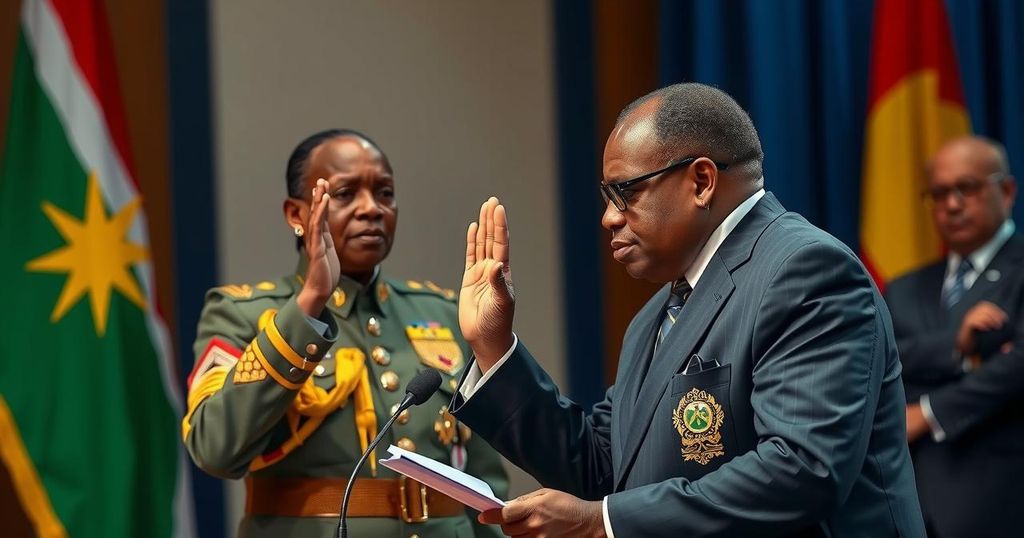Duma Boko was sworn in as Botswana’s president following a historic election that ended the ruling Botswana Democratic Party’s 60-year dominance. Boko pledged to address economic issues and implement social reforms. Outgoing president Mokgweetsi Masisi conceded defeat, acknowledging the need for a fresh approach. The election signifies a critical shift in Botswana’s political and economic landscape.
Botswana has witnessed a transformative moment in its political landscape with the swearing-in of Duma Boko as its new president, following a momentous election that ended the Botswana Democratic Party’s (BDP) nearly six-decade reign. Mr. Boko, a human rights lawyer and prominent opposition figure, took the oath of office during a private ceremony shortly after the election results indicated a clear defeat for the BDP, which has been in power since the country’s independence in 1966. In an address broadcast nationwide, President Boko outlined significant campaign initiatives, including a commitment to raise the minimum wage significantly to 4,000 pula (approximately $300) and introduce universal health insurance. He emphasized the necessity of fostering reliable investor relations and diversifying Botswana’s economy, which has heavily relied on diamond mining, to stabilize the country’s fiscal health. Former president Mokgweetsi Masisi acknowledged his party’s loss, attributing it to a disconnect with voters and an inadequate response to serious issues such as unemployment, which has soared to 27 percent. The transition has been characterized as peaceful and orderly, with President Boko affirming it as a testament to the strength of democracy in Botswana. This election marked Mr. Boko’s third attempt at the presidency, during which he has sought to consolidate opposition against the longstanding BDP. The sentiment among voters suggests a desire for significant change, with many expressing hope and anticipation for tangible improvements in their lives under the new administration. A public inauguration is set to follow, as Botswana embarks on this new chapter in governance, signaling a notable shift in its political dynamics.
The recent election in Botswana has significant implications for the nation’s democratic processes and governance. After nearly 60 years of continuous rule by the Botswana Democratic Party, the electoral upset leading to the ascension of Duma Boko represents a substantial shift in political power. Economic challenges, particularly high unemployment and issues surrounding governance, such as allegations of corruption during Masisi’s presidency, have contributed to the voters’ call for change. The new administration is expected to focus on economic diversification and improved social services, highlighting the critical transition faced by Botswana as it moves away from a diamond-dependent economy towards more sustainable prospects.
Duma Boko’s presidency marks a pivotal development in Botswana’s history, characterized by a significant electoral upset against a long-standing political party. His administration is anticipated to focus on urgent socioeconomic challenges facing the nation, particularly concerning employment and public welfare. The peaceful transition of power is hailed as a testament to the nation’s commitment to democratic principles, while the populace expresses hope for effective governance that addresses their needs.
Original Source: www.wfxg.com






